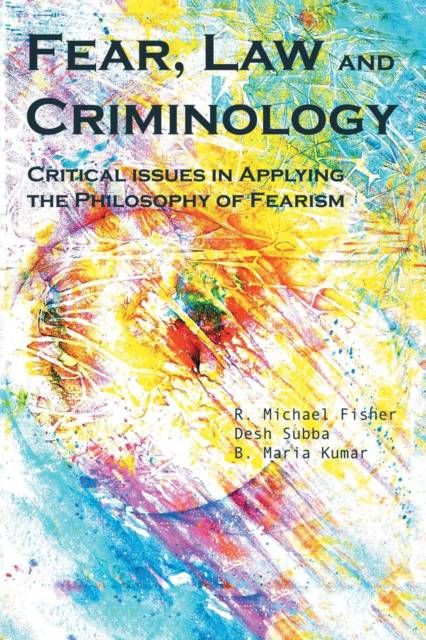
- Retrait gratuit dans votre magasin Club
- 7.000.000 titres dans notre catalogue
- Payer en toute sécurité
- Toujours un magasin près de chez vous
- Retrait gratuit dans votre magasin Club
- 7.000.0000 titres dans notre catalogue
- Payer en toute sécurité
- Toujours un magasin près de chez vous
Fear, Law and Criminology
Critical Issues in Applying the Philosophy of Fearism
Desh Subba, R Michael Fisher, B Maria Kumar
Livre broché | Anglais
25,45 €
+ 50 points
Description
With the growing awareness of many critics of risk society, the culture of fear and the dangerous rising levels of unhealthy fear around individual, group, and public insecurities, three keen observers of the human condition have joined experiences, theories, and ideas to create a fresh vision for how best to look at the fear problem and how law and criminology may benefit from a new lens or perspective. The authors, with their backgrounds in the study of the philosophy of fearism (a la Subba), bring a new lens to law and criminology to social policies, politics, and policing and how best to improve enforcement of safety, security, and moral order. The fearist perspective of a philosophy of fearism creates an exciting, challenging, and sometimes radical position, whereby the authors argue that fear itself requires a concerted focus for analysis and solutionsthat is, if law and criminology are to fully meet the highest standards of serving justice for all in a globalizing complicated world. Going beyond the simple fear of crime or fear of policing issues commonly dealt within discourses about law, the philosophy of fearism offers other concepts with a rich vocabulary introduced in this book, one of which is the introduction of a new subdiscipline called fearcriminalysis. Readers will find, additional to the main text as collective writing of the three coauthors, several fresh dialogues of the three authors in conversation, which bring their individual personalities, philosophies, and approaches into a weaving of differences and similarities. Overall, they each agree that fear has been underestimated and often misinterpreted in law and criminology, and this has resulted, at times, in exacerbating insecurity, crime, and injustice in the world.
Spécifications
Parties prenantes
- Auteur(s) :
- Editeur:
Contenu
- Nombre de pages :
- 258
- Langue:
- Anglais
Caractéristiques
- EAN:
- 9781984501165
- Date de parution :
- 20-08-18
- Format:
- Livre broché
- Format numérique:
- Trade paperback (VS)
- Dimensions :
- 152 mm x 229 mm
- Poids :
- 381 g

Les avis
Nous publions uniquement les avis qui respectent les conditions requises. Consultez nos conditions pour les avis.






